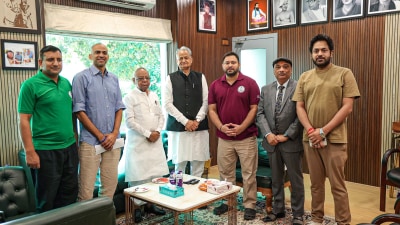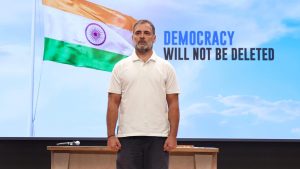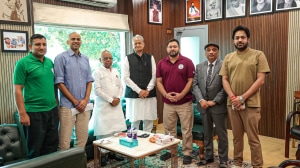PMO plans public-private roadmap for quota route
PMO wants to get India Inc to fund preparatory schools to train backward-caste students for IITs & medical colleges and to stagger the 27% OBC reservation in step with seat upgrade

A novel proposal to involve corporate India in the funding of a special course for backward-caste students to fast-track them to IITs and premier medical colleges forms part of a three-pronged strategy the Prime Minister’s Office is working on to tackle the reservation issue.
Aware that protests by both sides are spreading in more cities, Prime Minister Manmohan Singh is said to have opted for a strategy that looks at equalising opportunity in the long run rather than a piecemeal approach.
So while the three-member group of ministers, led by Defence Minister Pranab Mukherjee—it submitted its report to the PM today—is working on a “middle path” to defuse the reservation crisis, The Sunday Express has learnt that the Prime Minister and his colleague in the PMO, Prithviraj Chauhan, held detailed discussions two days ago. And last evening, Chauhan submitted a note to the PM outlining the proposal.
The key points in the note:
• Gradual increase of OBC percentage &
• Increase of seats in IITs and medical institutes
The rationale for implementing the 27% OBC quota in phases is the limited seats available today. For example, there are about 3900 seats in all seven IITs. To accommodate the 27% OBC quota, the IITs require to increase about 1000 seats and add another 1000 to keep the general category undisturbed. In short, the total number of increase in seats would be 2000—this works out to four new IITs.
So even if the government is able to construct one IIT a year, only one fourth of the quota will be accommodated. The idea, therefore, is to stagger the quota percentage. While the PMO formula does not spell this out, one proposal is to implement the quota over four or five years (say 7 by the end of the first, a total of 14 in second, 21 in third and 27 in fourth).
To increase seats, the PMO is considering those states which do not have to have IITs, including Uttaranchal, Himachal, Kerala, Orissa and Madhya Pradesh. Same will be done in the case of medical institutes.
• Getting pvt sector to fund backward-caste students
Given that a significant section of the private sector has said that it’s committed to affirmative action via upgrade of schools and student skills, the PMO has come up with a unique proposal. The government will identify the top 1000 OBC and SC/ST students from the merit list of the Joint Entrance Examination who did not make it to the IITs. These students will be invited to undergo “specialised training” for a year to bring them on par with general category students. While the Centre will fund infrastructure for these training colleges, the private sector will pay Rs 100,000 cess as vouchers to fund the institution.
The vouchers will be the private sector’s contribution to affirmative action as they have refused reservation. The same move will be adopted for medical students.
CWC flips through quota issue; focus on roundtable
New Delhi: Prime Minister Manmohan Singh told the Congress Working Committee on Saturday that the GoM’s recommendations on increasing higher education infrastructure ‘‘would require time and money’’. There was not much discussion on the issue. Defence Minister Pranab Mukherjee, who is heading the GoM, informed that ‘‘report takes care of the interests of all sections of students.’’ He, however, did not give any details of the GoM report. The 93rd constitutional amendment that provides for reservation in education did not figure in the achievements listed in a CWC resolution on two years of UPA government.
Instead, as senior members of the CWC said, the Kashmir roundtable on May 25 took up ‘‘more than half of the time’’. The view was to push ahead with the process, involving ‘‘all interested parties’’, rejecting the Hurriyat position that talks be restricted to separatists and influential political groups. —ENS
shishir.gupta@expressindia.com






- 01
- 02
- 03
- 04
- 05

























